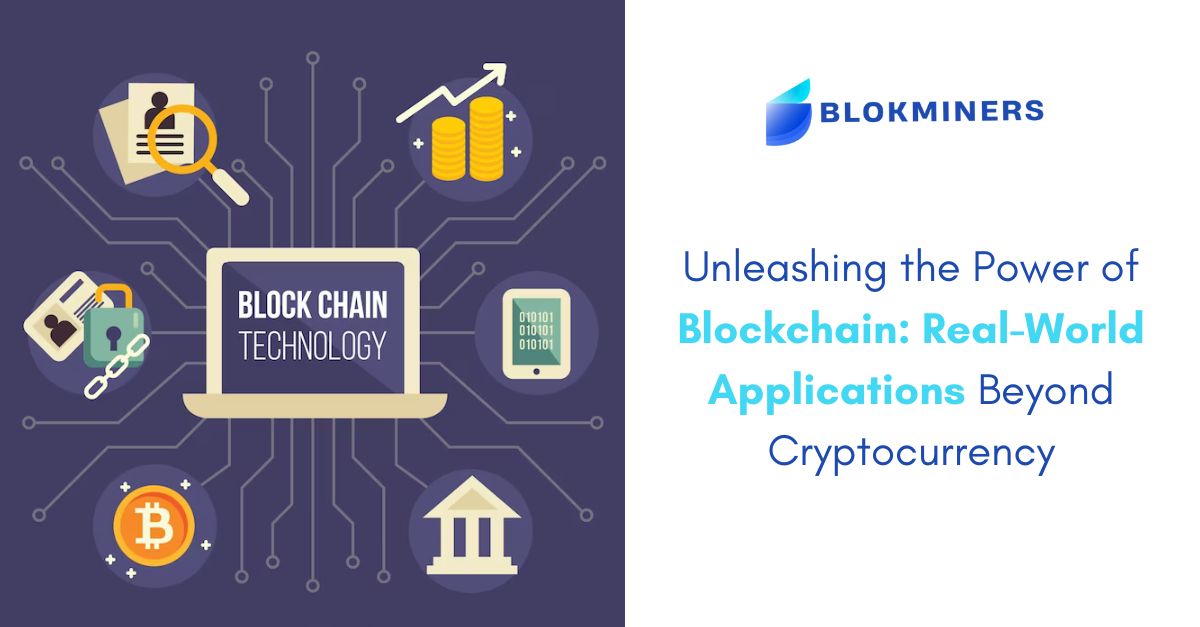Uncover how blockchain technology is reshaping industries, enhancing security, and revolutionizing processes in this comprehensive guide.

In the ever-evolving landscape of technology, Blockchain has emerged as a revolutionary force, extending its influence far beyond the realm of cryptocurrency. This distributed ledger technology, once synonymous solely with Bitcoin, has now become a cornerstone for a myriad of real-world applications, reshaping industries and unlocking unprecedented possibilities.
At its most basic level, blockchain is a chain of blocks, each containing a list of transactions. The decentralized nature ensures that information is stored across a network of computers, enhancing security and reducing the risk of data manipulation.
Decentralization means no single entity has control, promoting transparency and eliminating the need for intermediaries. The distributed ledger ensures that every participant in the network has access to the same information, fostering trust and reliability.
Smart contracts represent automated, self-executing agreements where the terms of the contract are encoded directly into the underlying code. Consensus mechanisms, such as proof-of-work or proof-of-stake, ensure agreement among network participants, validating transactions and maintaining the integrity of the blockchain.
Blockchain provides an immutable record of every transaction in the supply chain, ensuring traceability from source to consumer. This transparency diminishes fraudulent activities and guarantees the authenticity of products.
By securely recording every step in the supply chain, blockchain technology mitigates the risk of fraud and counterfeiting. This holds significant importance, especially in sectors such as pharmaceuticals and luxury goods.
Blockchain enhances the security and accessibility of electronic health records, allowing for secure and seamless sharing of patient information among authorized parties.
In the pharmaceutical industry, blockchain ensures the traceability and authentication of drugs, preventing the distribution of counterfeit medications.
Blockchain in finance and banking facilitates faster and more cost-effective cross-border transactions by eliminating intermediaries and reducing the time and fees associated with traditional banking systems.
Assets like real estate or art can be tokenized on the blockchain, allowing for fractional ownership and increased liquidity in traditionally illiquid markets.
Blockchain in identity management enables individuals to have control over their digital identities, reducing the risk of identity theft and providing a more secure and privacy-focused identity management system.
The decentralized nature of blockchain ensures that personal data is not stored in a central repository, reducing the risk of large-scale data breaches.
Blockchain can enhance the integrity of electoral processes by providing a transparent and tamper-resistant record of votes, reducing the risk of fraud.
The immutability of blockchain ensures that once a vote is cast, it cannot be altered, preventing voter fraud and ensuring a more trustworthy electoral system.
The rise of DeFi platforms leverages blockchain to offer decentralized alternatives to traditional financial services. From lending and borrowing to trading and yield farming, DeFi is reshaping the financial landscape.
NFTs, representing ownership of digital assets on the blockchain, have gained immense popularity. Beyond digital art, NFTs are extending to areas like virtual real estate, gaming, and even tokenized real-world assets.
The integration of artificial intelligence with blockchain enhances data security and transparency. Smart contracts powered by AI algorithms can automate decision-making processes, ensuring more efficient and secure transactions.
Combining IoT with blockchain creates a secure and transparent ecosystem for connected devices. From supply chain management to smart cities, this synergy ensures tamper-proof data and increased trust in IoT networks.
Embracing the Blockchain revolution with Blokminers.io is not just a technological leap; it’s a strategic move towards a more secure, transparent, and efficient future. Blokminers.io stands at the forefront of this transformative wave, offering cutting-edge Blockchain development services that redefine industries, streamline processes, and enhance overall efficiency.
© 2024 Crivva. All Rights Reserved.